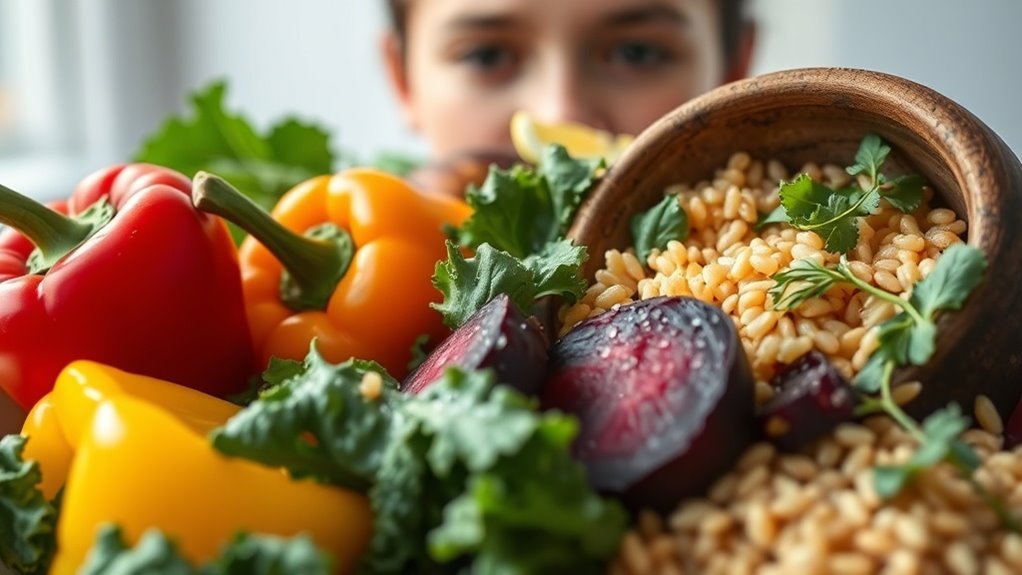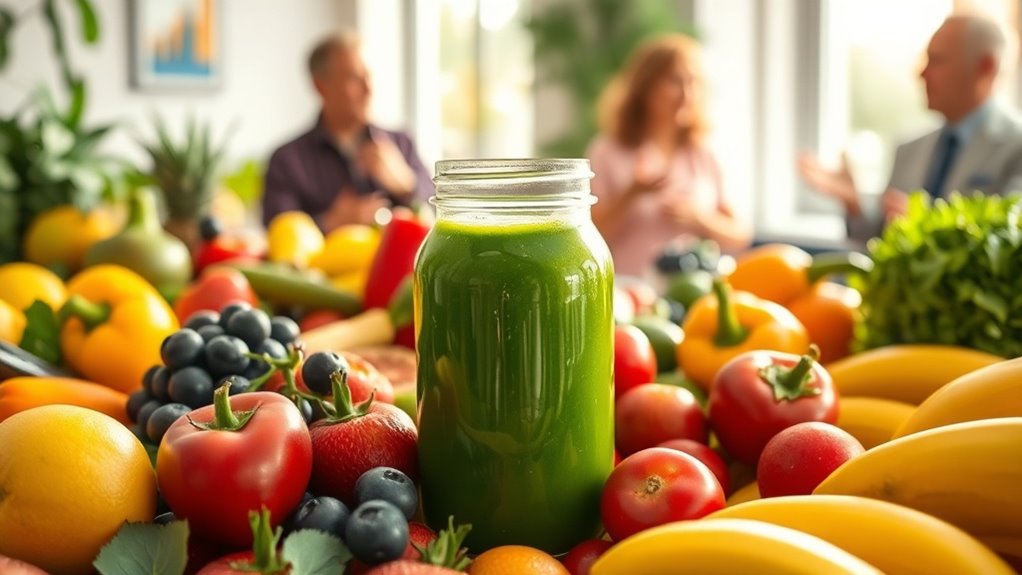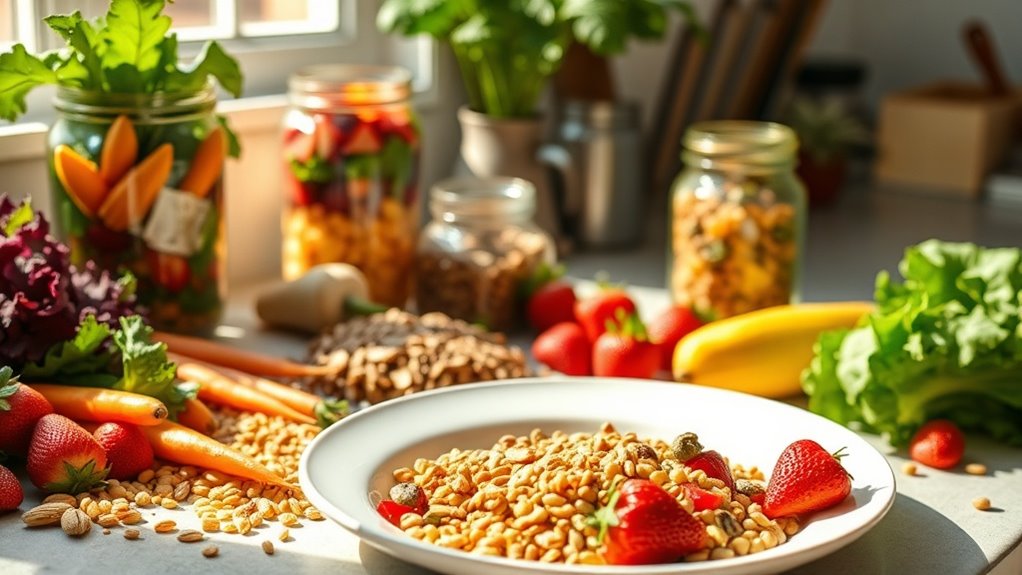Why Your Skin Might Be Reacting to What’s on Your Plate
You might be surprised to learn that your skin could be reacting to what’s on your plate. Certain foods can trigger flare-ups like acne or eczema, and common culprits include dairy, gluten, and refined sugars. Understanding this connection isn’t just about avoiding specific foods; it’s about nurturing your skin from the inside out. Curious about what you should include in your diet for better skin health? Let’s explore further.
The Link Between Diet and Skin Health
When you consider your skin’s health, it’s crucial to recognize how your diet impacts it. Nutrient-rich foods like fruits, vegetables, and healthy fats can promote hydration and elasticity, enhancing your skin’s appearance.
Conversely, a diet high in refined sugars and unhealthy fats may lead to inflammation and blemishes.
Prioritizing a balanced diet can significantly improve your skin’s overall health and radiance. Additionally, incorporating antioxidant-rich fruits into your meals can effectively nourish your skin while combating oxidative stress.
Common Food Triggers for Skin Reactions
Certain foods can unexpectedly trigger skin reactions, impacting your complexion and overall skin health. Common culprits include dairy, nuts, gluten, and shellfish. Identifying these triggers is crucial for preventing flare-ups. Including antioxidant-rich fruits in your diet may help improve your skin’s overall resilience against reactions.
| Food Type | Skin Reaction |
|---|---|
| Dairy | Acne and eczema |
| Nuts | Hives and swelling |
| Gluten | Redness and irritation |
| Shellfish | Itching and rashes |
The Role of Sugar and Processed Foods
Beyond identifiable food triggers like dairy and gluten, sugar and processed foods can also play a significant role in skin reactions.
Consider how they may:
- Promote inflammation, worsening conditions like acne and eczema.
- Spike insulin levels, leading to undesirable skin changes.
- Contribute to dehydration, leaving your skin dull and lifeless.
Additionally, high sugar intake leads to collagen and elastin damage, which can significantly affect your skin’s elasticity and overall appearance. Making mindful choices can help soothe your skin and improve its overall health.
Dairy Products: A Double-Edged Sword
Although dairy products are a staple in many diets, they can act as a double-edged sword for your skin. While some studies link dairy to acne and inflammation due to hormones and proteins, others suggest benefits like hydration and nutrients. Many experts affirm that dairy can fit into a balanced diet due to its essential nutrients like calcium and protein. If you’re struggling with skin issues, pay attention to how your body responds to dairy and consider adjusting your intake accordingly.
Anti-Inflammatory Foods for Glowing Skin
When you’re looking to enhance your skin’s appearance, incorporating anti-inflammatory foods into your diet can make a significant difference.
Try adding these to your meals:
-
Berries: Packed with antioxidants, they fight free radicals.
-
Fatty Fish: Rich in omega-3s, they help reduce inflammation.
-
Leafy Greens: Loaded with vitamins and minerals, they promote skin health.
These choices can lead to a more radiant complexion! Additionally, consuming these foods fosters a strong connection to anti-inflammatory foods that support overall wellness.
Tips for a Skin-Friendly Diet
Eating a skin-friendly diet involves making conscious choices that prioritize both nutrition and your skin’s health. Focus on incorporating whole foods, such as fruits, vegetables, and healthy fats.
| Food Group | Skin Benefits |
|---|---|
| Fruits & Veggies | Rich in antioxidants |
| Healthy Fats | Improve skin hydration |
| Whole Grains | Support healthy digestion |
Aim for balance to achieve glowing skin!




